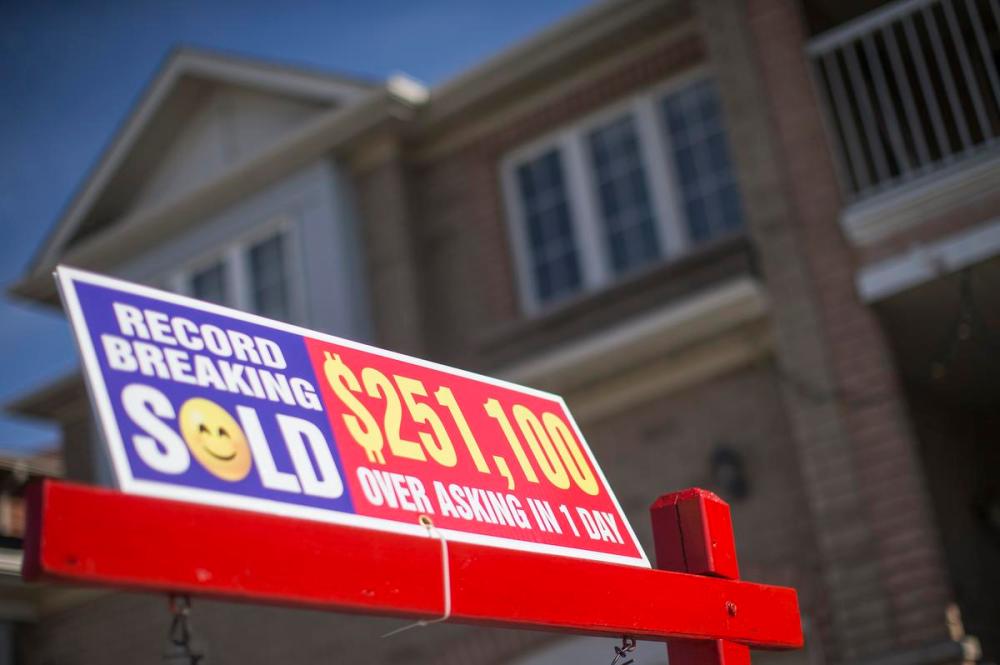While the politicians talk, Bank of Canada aims to tame house prices with a dose of psychology
Advertisement
Read this article for free:
or
Already have an account? Log in here »
To continue reading, please subscribe:
Monthly Digital Subscription
$0 for the first 4 weeks*
- Enjoy unlimited reading on winnipegfreepress.com
- Read the E-Edition, our digital replica newspaper
- Access News Break, our award-winning app
- Play interactive puzzles
*No charge for 4 weeks then price increases to the regular rate of $19.00 plus GST every four weeks. Offer available to new and qualified returning subscribers only. Cancel any time.
Monthly Digital Subscription
$4.75/week*
- Enjoy unlimited reading on winnipegfreepress.com
- Read the E-Edition, our digital replica newspaper
- Access News Break, our award-winning app
- Play interactive puzzles
*Billed as $19 plus GST every four weeks. Cancel any time.
To continue reading, please subscribe:
Add Free Press access to your Brandon Sun subscription for only an additional
$1 for the first 4 weeks*
*Your next subscription payment will increase by $1.00 and you will be charged $16.99 plus GST for four weeks. After four weeks, your payment will increase to $23.99 plus GST every four weeks.
Read unlimited articles for free today:
or
Already have an account? Log in here »
Hey there, time traveller!
This article was published 13/04/2022 (1338 days ago), so information in it may no longer be current.
All of us non-experts could be forgiven for thinking that when the Bank of Canada makes headlines with a significant increase in interest rates, it’s all about economics.
Not so much. It’s about psychology as much as it’s about the dismal science, as the bank itself was at pains to explain on Wednesday.
The longer people see inflation raging well above target levels, explained Bank of Canada Governor Tiff Macklem, the more they’ll believe it will stay that way.

For the same reason, the longer they see house prices rise at annual double-digit rates, the more they believe that it’s bound to continue — and think they can’t lose by bidding them up even more.
With a half-point increase in its key interest rate and, even more important, loud warnings that there’s more to come, the bank is trying to snap us out of our collective mindset that the way things have been going is the way they’ll be down the road.
Interest rates being blunt instruments, raising them will affect the economy in unpredictable ways. In the short run it isn’t likely to tame inflation because, as the bank made clear, high prices in Canada are being driven mainly by external factors (war in Ukraine being the most striking example).
But higher rates will be watched most closely for the effect they have on the housing market. Raising the cost of money is bound to dampen demand. The question is how much — just enough to head off future increases in house prices, or enough to actually bring them down in seriously overheated markets like Vancouver and the GTA.
What seems certain is that any hope for bringing prices back to earth lies with those rising rates, rather than the flurry of words and actions we’ve seen in recent weeks from politicians at all levels.
Start with last week’s federal budget, which was billed as a housing budget that took dead aim at affordability.
It includes a new “Tax-Free First Home Savings Account,” which will allow first-time buyers to accumulate $40,000 toward a down payment. Leave aside the modest amount compared to the million-dollar-plus average home cost in the priciest markets; higher mortgage rates will more than erase any tax savings.
There’s also a new tax on so-called “property flippers,” i.e. anyone who sells a house less than a year after buying it.
This would nibble away at one of middle-class Canada’s most cherished tax breaks (the exemption for capital gains on a principal residence) but it’s doubtful it will have much of an impact on the overall housing market. Like the various penalties (and now an outright ban) on foreign property buyers, it seems more symbolic than real.
Then there’s Ottawa’s promise, backed with $8.5 billion over five years, to build 100,000 new homes and tackle the fact that housing supply has fallen well short of demand in key areas.
That’s a real issue that must be addressed, but it’s no short-term solution to sky-high prices. More seriously, it will mean confronting municipalities that have strangled housing supply with overly elaborate regulations and so-called “exclusionary zoning” — putting large areas of cities off-limits to anything but low density, single-family dwellings.
The Ontario government recently proposed going down that road, then backed off when municipalities resisted. How likely is it that a level of government even more removed from local issues will be more successful, or have the political gumption to push harder?
No, all those fine words from the politicians add up to much less than meets the eye. The real hope for moderating house prices is with the Bank of Canada and its determination to change our collective psychology.


